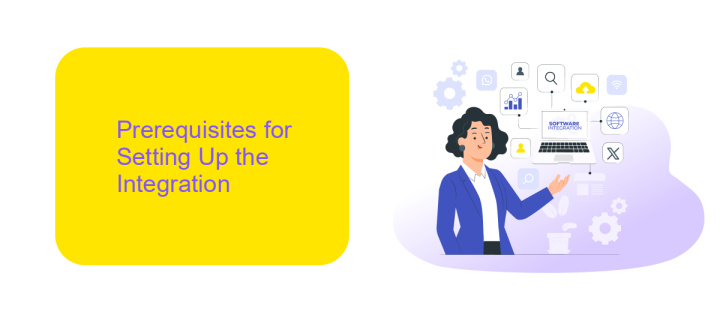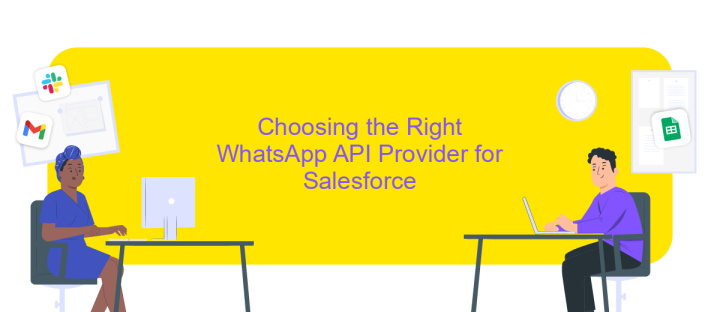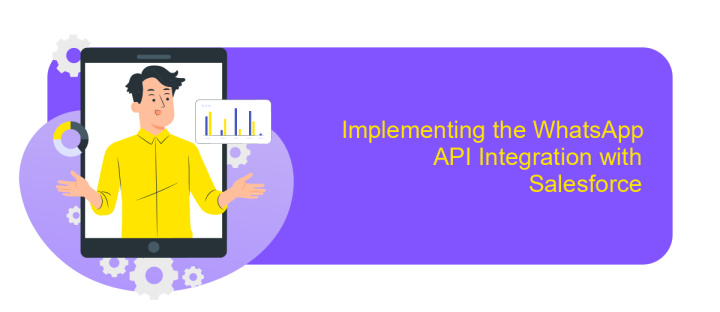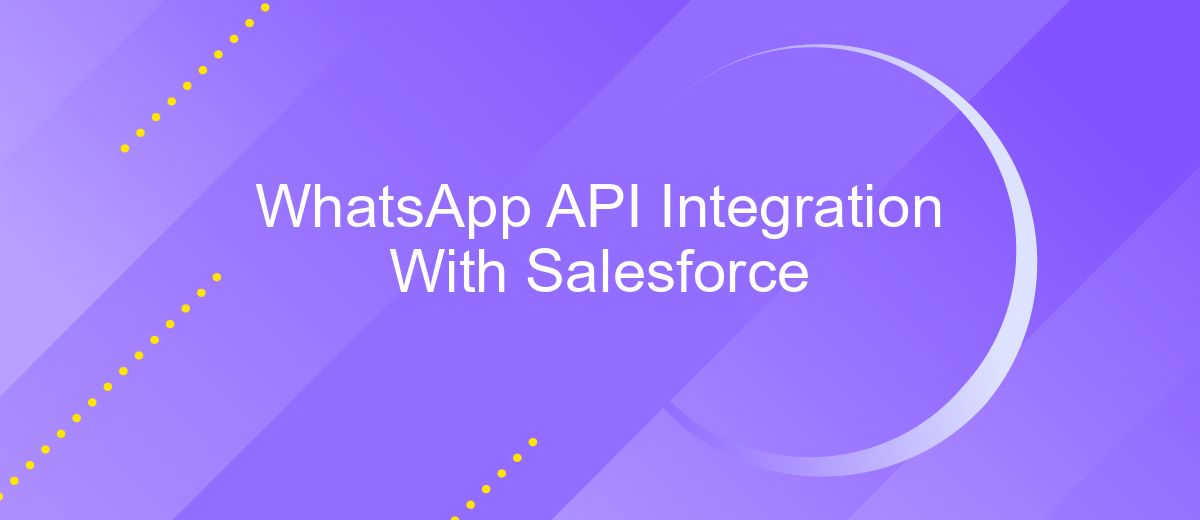WhatsApp API Integration With Salesforce
Integrating WhatsApp API with Salesforce empowers businesses to enhance their customer communication strategies by merging two powerful platforms. This seamless integration allows for real-time messaging, improved customer support, and personalized interactions, directly within Salesforce. By leveraging WhatsApp's widespread popularity and Salesforce's robust CRM capabilities, businesses can streamline operations, boost customer engagement, and drive sales growth, creating a more efficient and connected customer experience.
Understanding the Benefits of WhatsApp API Integration with Salesforce
Integrating WhatsApp API with Salesforce offers a seamless communication channel that enhances customer engagement and streamlines business operations. By leveraging this integration, businesses can communicate with customers in real-time, providing immediate support and personalized interactions that lead to improved customer satisfaction and loyalty.
- Enhanced Communication: Directly engage with customers on a platform they frequently use, ensuring faster response times and improved service delivery.
- Improved Customer Insights: Access to conversation histories and customer data within Salesforce allows for better understanding and personalization of customer interactions.
- Automated Workflows: Automate routine tasks such as notifications, reminders, and follow-ups, freeing up valuable time for your team to focus on more strategic activities.
- Scalability: Easily scale your customer communication efforts to accommodate growing business needs without compromising on quality or efficiency.
Ultimately, the integration of WhatsApp API with Salesforce not only streamlines communication processes but also provides valuable insights into customer behavior. This enables businesses to make data-driven decisions, enhance customer experiences, and drive growth. By utilizing the strengths of both platforms, companies can maintain a competitive edge in today’s fast-paced digital landscape.
Prerequisites for Setting Up the Integration

Before you begin integrating WhatsApp API with Salesforce, ensure you have a few essential prerequisites in place. First, you need an active WhatsApp Business Account, as the API is designed for businesses. You will also need a verified business profile to maintain trust and authenticity with your customers. Additionally, ensure that you have administrative access to your Salesforce account to configure and manage the integration process effectively.
Another crucial step is to choose a reliable integration platform like ApiX-Drive, which simplifies the process of connecting WhatsApp API with Salesforce. ApiX-Drive offers user-friendly tools and automation features that facilitate seamless data transfer between the two platforms. Make sure you have access to the necessary API keys and tokens for both WhatsApp and Salesforce. Finally, verify that your network and systems comply with the security protocols required for data protection, ensuring a secure and efficient integration process.
Choosing the Right WhatsApp API Provider for Salesforce

Integrating WhatsApp with Salesforce can significantly enhance customer interaction, but choosing the right API provider is crucial for seamless functionality. The right provider will ensure reliable communication, data security, and a user-friendly interface that aligns with your business needs.
- Evaluate the provider's compliance with WhatsApp's Business Policy and Salesforce integration capabilities. Ensure they offer APIs that support both platforms efficiently.
- Consider the scalability of the API. As your business grows, the API should handle increased volumes of messages without compromising performance.
- Analyze the security measures in place. The provider should offer end-to-end encryption and robust data protection to safeguard customer information.
- Review customer support and documentation quality. A provider with responsive support and comprehensive guides can ease the integration process.
- Compare pricing models to ensure they align with your budget while offering the necessary features and support.
Ultimately, the right WhatsApp API provider for Salesforce should offer a balance of functionality, security, scalability, and support. By carefully evaluating these factors, businesses can ensure a successful integration that enhances customer communication and operational efficiency.
Implementing the WhatsApp API Integration with Salesforce

Integrating WhatsApp API with Salesforce can significantly enhance customer communication by providing a seamless messaging experience. To begin, ensure you have access to the WhatsApp Business API and a Salesforce account with the necessary permissions. This integration allows businesses to manage WhatsApp conversations directly within Salesforce, streamlining customer interactions and data management.
First, configure your WhatsApp Business API by setting up a verified business account and obtaining the necessary API credentials. Next, in Salesforce, navigate to the AppExchange and search for a WhatsApp integration package compatible with your version of Salesforce. Install the package and follow the setup instructions provided by the vendor to connect your WhatsApp API.
- Ensure your WhatsApp Business Account is verified and active.
- Install a compatible WhatsApp integration package from Salesforce AppExchange.
- Configure the API settings in Salesforce to authenticate with WhatsApp.
- Test the integration with sample messages to ensure functionality.
After successful integration, your team can handle customer inquiries, send notifications, and automate responses directly from Salesforce. This setup not only boosts efficiency but also enhances customer satisfaction by ensuring timely and personalized communication. Regularly monitor the integration to maintain smooth operation and update settings as needed.


Best Practices and Use Cases for WhatsApp and Salesforce Integration
Integrating WhatsApp with Salesforce can significantly enhance customer engagement and streamline communication processes. To ensure a successful integration, it's crucial to follow best practices such as maintaining data privacy by adhering to GDPR guidelines and using two-factor authentication for secure access. Regularly updating and testing your integration setup is essential to ensure seamless functionality. Additionally, leveraging automation tools like ApiX-Drive can simplify the integration process by providing a user-friendly interface to connect WhatsApp with Salesforce without extensive coding knowledge.
Use cases for this integration are vast and varied. Customer support teams can utilize WhatsApp to manage inquiries directly within Salesforce, ensuring quick response times and efficient resolution tracking. Sales teams can benefit from instant communication with leads, using WhatsApp to send personalized messages and updates. Marketing departments can harness the power of WhatsApp for targeted campaigns, reaching customers with tailored promotions. By integrating WhatsApp with Salesforce, businesses can create a unified platform for customer interaction, enhancing overall operational efficiency and customer satisfaction.
FAQ
What is the WhatsApp API Integration with Salesforce?
How can I integrate WhatsApp API with Salesforce?
What are the benefits of integrating WhatsApp API with Salesforce?
Do I need technical expertise to set up WhatsApp API Integration with Salesforce?
Can I automate customer interactions with WhatsApp API Integration in Salesforce?
Apix-Drive will help optimize business processes, save you from a lot of routine tasks and unnecessary costs for automation, attracting additional specialists. Try setting up a free test connection with ApiX-Drive and see for yourself. Now you have to think about where to invest the freed time and money!

